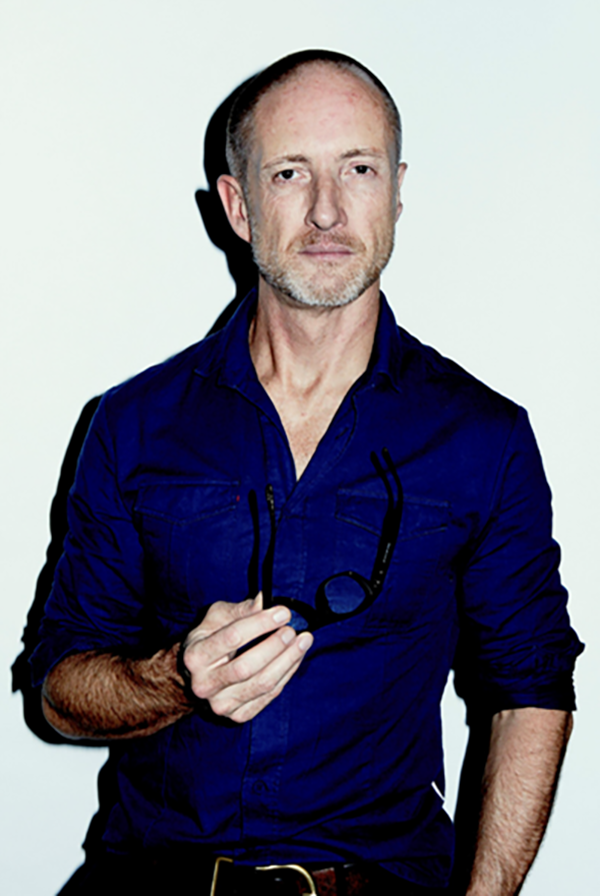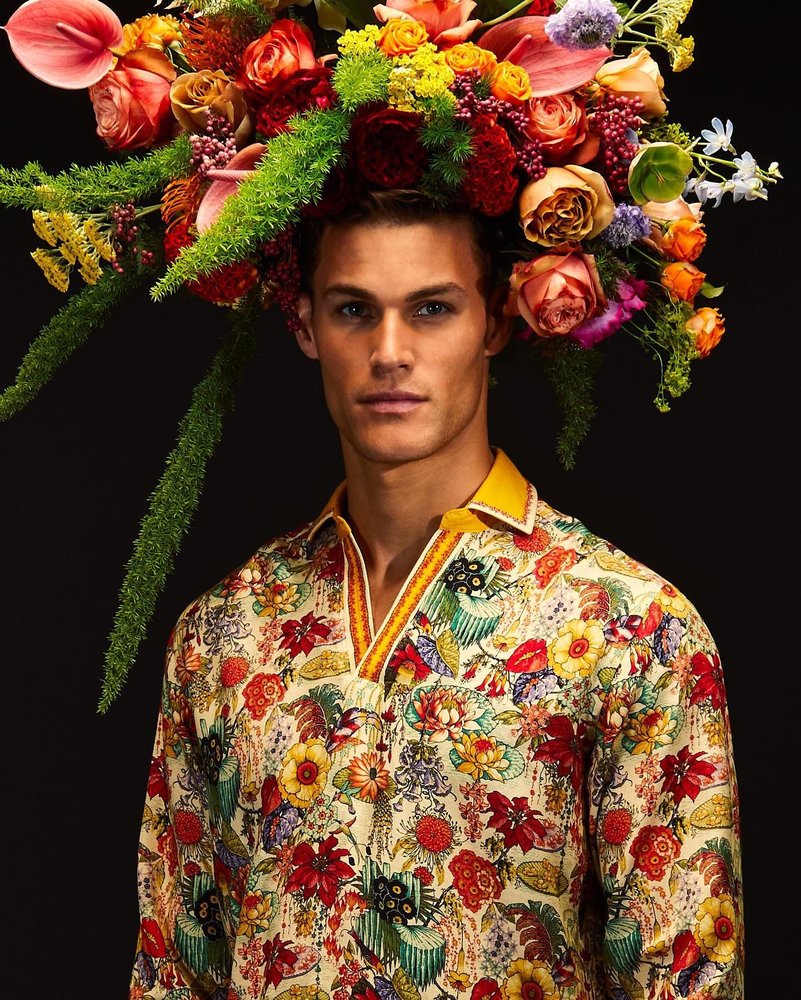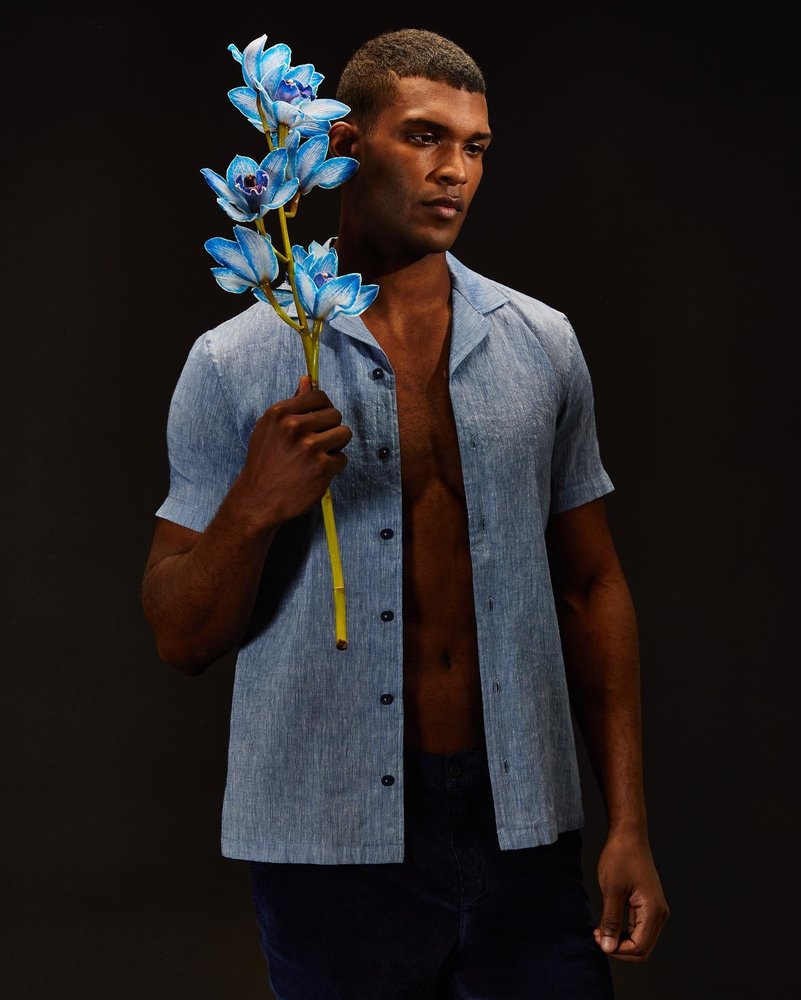May 20, 2021
Few UK brands have enjoyed such explosive growth as Orlebar Brown, the stylish resort label noted for its
brilliant photo imagery swimwear.

The label’s founder Adam Brown is an atypical fashionista, who worked in children’s charities and even prisons before finding his niche in the apparel business. Brown got the idea for his brand while travelling and noticing how dully dressed so many otherwise well-dressed men are when it comes to leisure time.
His used of technical fabrics and punchy imagery immediately won a following, so much so that barely a decade after he founded Orlebar Brown he was able to sell it to the greater Chanel group, while still remaining creative director.
A spirited open-minded entrepreneur, we caught up with Brown, just as he is poised to participate in Vodafone’s novel ThoseWhoDare series of webcasts on how to successfully launch your own business.
FashionNetwork.com: How did you get into fashion?
Adam Brown: Well, that was, that was purely by chance when I was 40. I'd been working in the voluntary sector, in HIV prisons and children's charities. Then I became a photographer, I was 40 years old, and I was a terrible photographer. So really, I was looking for something to do, I had the idea for Orlebar Brown, and it was around an item of clothing; around tailored swim shorts. So it was because of a particular idea rather than a desperate yearning to be in fashion. I think I'm not a fashion designer: I very much I fall into the 'curate' rather than 'create' category.
FNW: What was the toughest or most exciting thing about creating your own brand?
AB: The first one was obviously seeing your product worn on a beach in Ibiza for the very first time. Nothing will take over from that moment. Another one was just that you design a product, but then it becomes a brand. So that the values and the DNA that come from that original product then go on to form this sort of living, breathing brand and seeing that brand come to life. And seeing it sort of become a character. Seeing it have personalities, seeing it speak in a certain way, for me has definitely been the thing I'm probably proudest of. You know that realization it is not just a pair of shorts, but it's something that's imbued with a sort of DNA and values and character and personality and laughs and songs and cries. That's been the most exciting thing.
The toughest thing? There hasn't been a 'toughest' in this. I suppose it's no different to any other startup business; money was always a concern; always thinking about how you're going to be managing cash flow. There have been tough things like, as you start to go into other territories; into America, into South America and into the Far East. How do you do that?

FNW: How has being in the Chanel group changed your working approach?
AB: It hasn't. Orlebar Brown continues to be Orlebar Brown. We have the joy of having being in the Chanel group and just knowing that the owners have your shared values and shared aspirations for the brand. Whether that's around quality, whether that's around trust, whether that's around the sort of emotional engagement with the brand by customers. In our working approach, we continue to do what we've always set out to do. We have support, whether it is retail advice, or legal advice, or just sort of reporting advice. Knowing that it is there, which we didn't have before, has been incredibly useful.
FNW: Have there been synergies with Chanel’s cousin company Eres?
AB: Yes, absolutely. You know, clearly we are the menswear version of Eres. Whether it's looking at retail locations, seeing where Eres has had stores -- how can we help where we have stores? Clearly there are synergies: we want to reach the same people, we want to go to the same places, we exist in the same environment, and we talk to each other very regularly. There are increasing synergies with Eres.
FNW: How has Brexit changed your working practices, seeing as you manufacture in Portugal?
AB: It's an ongoing complication. I think we probably fall into the camp where Brexit has been as difficult to manage as Covid. It's ongoing, we don't see it, sort of, it's sorting itself out. But I think it's going to take many months before we feel it's settled down. Our manufacturing is in Portugal. So obviously, like many other brands we are looking at how we bring our products into the country. 'Do we leave that or do we set up warehouses elsewhere?' We are setting up warehousing in Europe. Clearly, we're thinking about how we get the product to customers; we want to keep that as simple as possible. But there's no easy way to say -- as with every other brand, it's been an added complication and made things this year even more challenging.
FNW: What is Orlebar Brown’s annual turnover?
AB: We will be around the 30 to 32 million (sterling) mark this year.

FNW: Where do you want the brand to be in five years?
AB: Five years doesn't even feel like that far in advance. In five years’ time, I hope that we'll be doing pretty much the same sort of thing that we're doing now. But in a bigger way, there are so many more holiday places where we can be. We haven't really started South America, we haven't started the Far East. We haven't started many new other product categories, whether it's travel accessories, luggage, shoes, outerwear, and I hope that we'll be meeting our customers in a way the customer truly wants us to meet them. I think you can feel that shifting dynamic. From customers, brands and businesses expecting customers to fit in with the way they want the customers to shop, to actually us fitting in with the way the customer wants to shop. And I hope in five years’ time that when we've got that incredibly slick operation, that the customer finds that we are meeting them where they want to meet in the way they want to meet providing the services they want, as well as the product that we're already delivering. Thank you very much.
FNW: What do you hope young entrepreneurs can learn from your experience?
AB: I hope entrepreneurs think it actually doesn't need to be that difficult. And I think keeping things simple. So I started with one pair of swim shorts in four lengths. I had one product for three years -- you do not need to overcomplicate this. Finding that hero product, whether that product is a service or an item, and doing that one thing really well rather than doing a load of things in an average way. Keep it small. Don't feel the pressure to go too fast. You know, those are some key things I learned on the way that I think are fairly standard messages across the board that might be useful.
FNW: Why did you decide to join the #ThoseWhoDare Vodafone event?
AB: A multitude of reasons really, I think it's good as we come out of the pandemic. I really like the idea of bold thinking to help your business grow. If there are any lessons, any learnings that I've had over the last few years about things like storytelling and around the challenges about how to connect with customers, the challenges facing businesses, then I'm delighted to be able to help.
Adam Brown will be sharing his best advice on utilizing data insights to understand customers and minimize business costs at Vodafone’s #ThoseWhoDare virtual conference on Thursday 20th May 2021. As part of its ambition to support SMEs (small and medium enterprises), the week-long event will feature keynotes from over 30 dynamic and game-changing entrepreneurs. One can register for attendance here.
